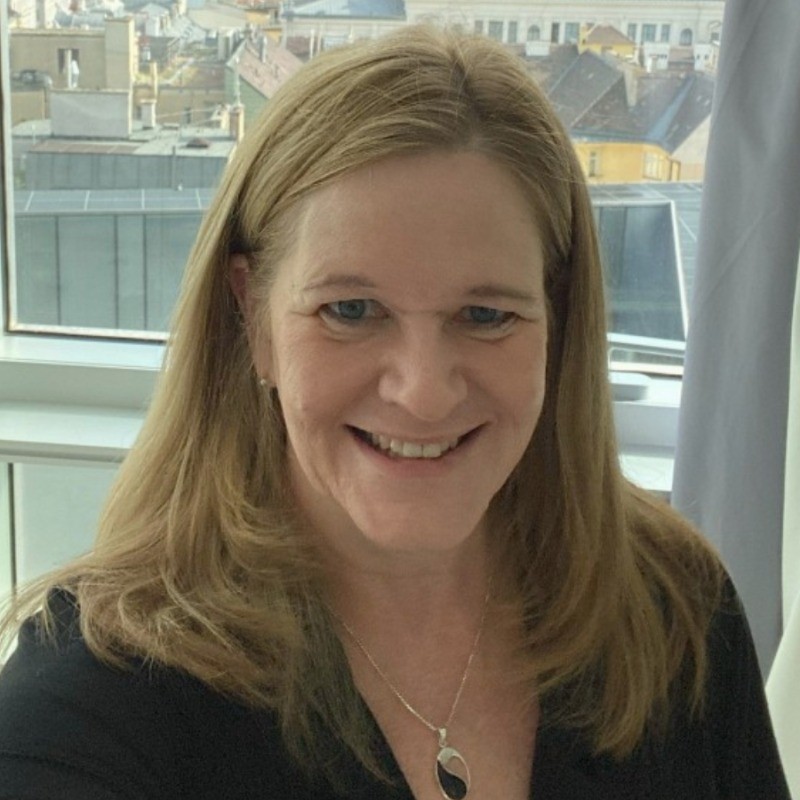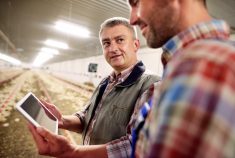Cattle Young Leaders program
More than 180 mentor/mentee pairs have completed the Canadian Cattle Association’s annual Canadian Cattle Young Leaders (CYL) program since 2010, including Brenda Schoepp and Jeff Braisher. That’s an impressive track record.
Jessica Radau was an ag journalist and a mentee in the Canadian CYL program in 2018. Now she looks after the program as the Canadian Cattle Association’s youth leadership co-ordinator.
Read Also

How scientists are using DNA and climate data to breed crops of the future
A method for forecasting how crops will perform in different environments so that plant breeders can quickly select the best parents for new, climate-resilient varieties.
Radau credits the longevity of this program to support from the beef industry. “People are always reaching a helping hand back, looking for the next generation,” she says.
Mentees typically come to the program with an idea of what they’d like to achieve in the beef industry. Once the mentees are chosen, the mentor selection committee seeks out a mentor with skills that will mesh with each mentee. Sometimes, the best fit is a mentor from outside the country, or even outside the agriculture industry.
Once the pairs meet, mentors help mentees fine-tune their goals, often pushing their mentees to “dream bigger” and come up with more ambitious plans. Then the mentors help their mentees develop road maps that will get them where they want to go.
The mentors in the CYL program transfer skills, share information and help their mentees build networks. But for many mentees, Radau says, the most important takeaway is “the power of having somebody in your corner.” Radau speaks from personal experience as well as for the program when she says that mentors are often “cheerleaders” for their mentees, and that this support helps mentees build the confidence they need to succeed.
Mentors and mentees are encouraged to meet at least every other week over a nine-month period and to be flexible to fit mentees’ schedules. The program provides funds for travel so the mentees and mentors can meet in person and attend industry conferences and workshops. The biggest program component, the mentors’ time, is 100 percent volunteered. “It’s really incredible to see how generous people are when someone takes an interest in their work,” Radau says.
The CYL program takes mentee applications every year at the end of March. Mentees must be between 18 and 35 and they don’t need to be directly involved in beef production. Vets, nutritionists, people in the retail end of the supply chain and others passionate about the sector are welcome to apply.
He was a Young Agrarian
Andrew Rushmere is a vegetable farmer in Alberta and B.C. In 2021, Rushmere served as a mentor in the Young Agrarians Business Mentorship network. This program pairs experienced farmers with young (and new) farmers, with the goal of helping young farmers develop farms that are ecologically sustainable and financially viable. This program offers a highly structured one-on-one mentor/mentee relationship.
Rushmere says that, although he was a mentor and not a mentee, there’s no question that he benefited from the program. “First of all,” he says, “it was the connection and friendship with a fellow farmer.” Working with his mentee, he says, “helped solidify some learnings, and helped build a sense of confidence around things that I might have done well.”
When he was first asked to take part in the program, Rushmere says, “I felt like I wasn’t experienced enough to be a mentor.” He asked himself: “Do I have the skills to walk somebody through their own decision-making?” To get good at this, Rushmere recognized, he would have to step out of his comfort zone.
Rushmere was rewarded early in the relationship. “I could tell by the reactions of my mentee that I do have something to offer.”
Rushmere says it’s not just mentees that are emotionally at risk in good mentor/mentee relationships. He talked to his mentee about his business successes, and also about mistakes he’s made. “You’re very vulnerable, talking about your failures.”
Learning How to FaRM
Farmers for Climate Solutions is a coalition of farmers advocating for policies and programs to help farmers reduce greenhouse gas emissions.
Through their Farm Resilience Mentorship program (FaRM), mentees learn how to implement low-emission practices through peer-to-peer-networking, online resources and advice from experienced mentors.
Andrew Rushmere, farm program director with Farmers for Climate Solutions, says, “We know, from decades of research and experience that farmers tend to learn best from their peers — or at least be more receptive to learning from their peers.”
Most FaRM mentors are farmers, but agronomists, agrologists or other professionals are also recruited. Mentor training is based on the principles of adult learning, which includes presentation skills, reading research papers and how to be an engaging presenter. The most important lesson, says Rushmere, is to “learn how to listen and not foist your experience on someone but still be able to tell your story.”
Mentors are valuable, but a lot of FaRM learning comes from peer-to-peer relationships developed in the group setting format. Rushmere says the key to success is giving farmers the confidence they need to implement change on their farms. Mentors serve as “cheerleaders and hand-holders” and point mentees toward the right resources. “Every single farmer is different, so they’re going to know what works best on their land.”
FaRM is free for Canadian farmers. Learn more at farmlearninghub.ca.















